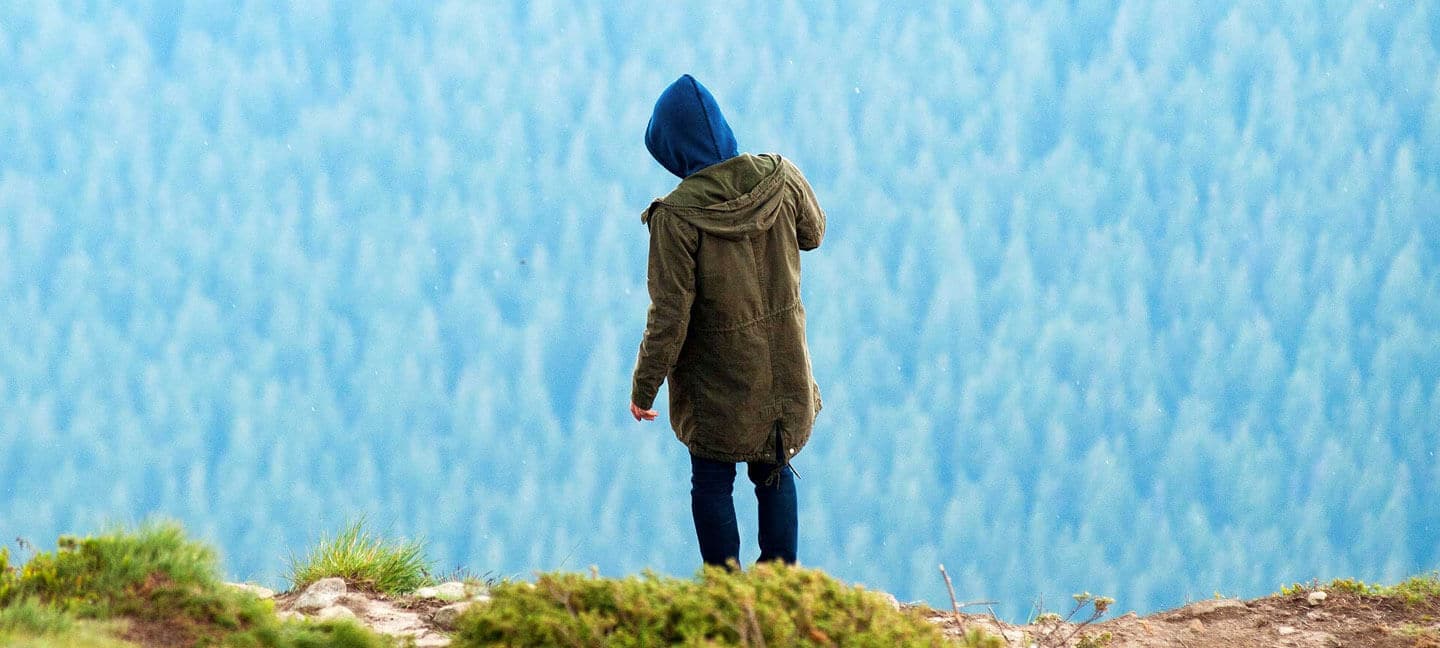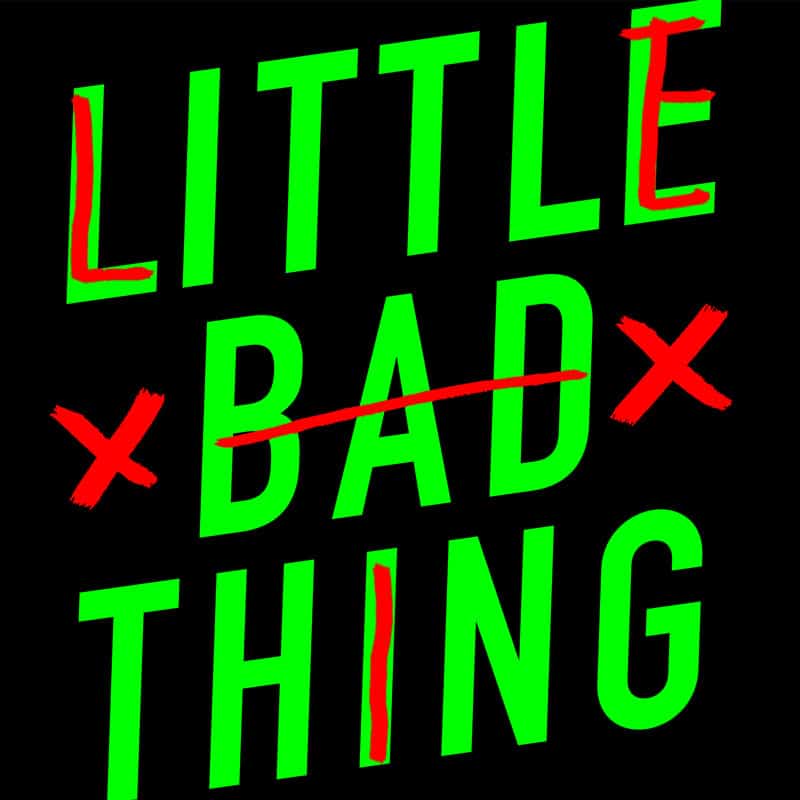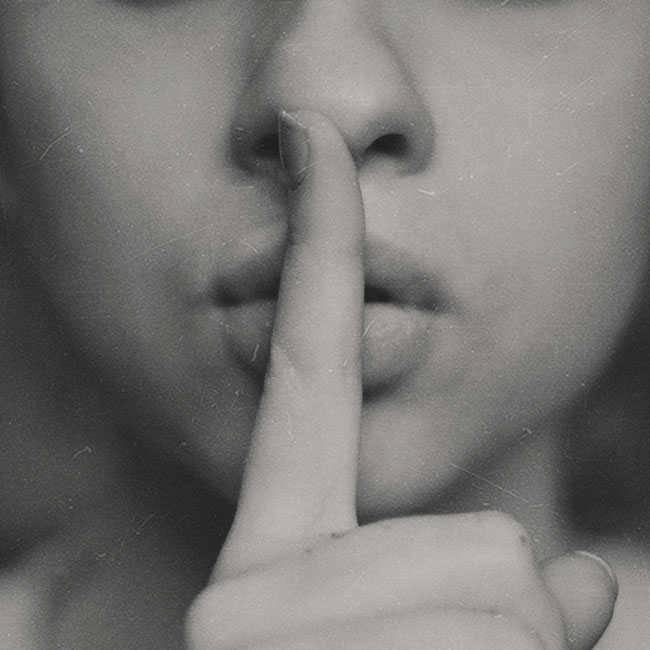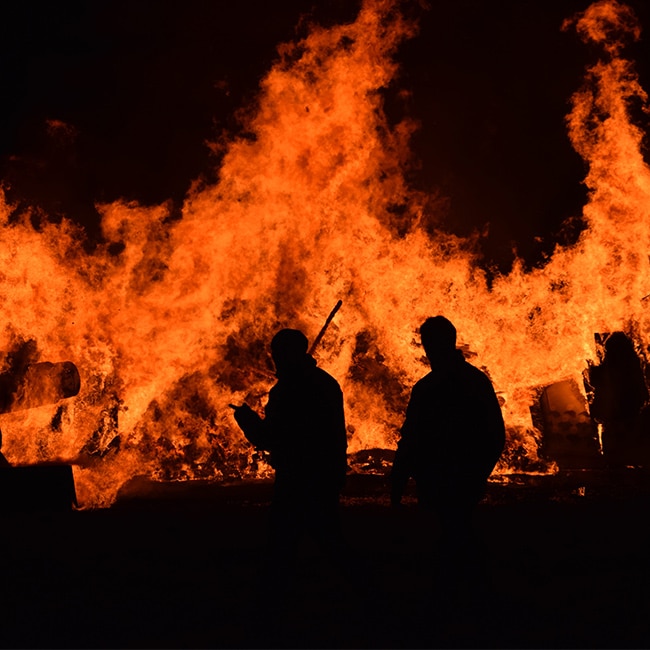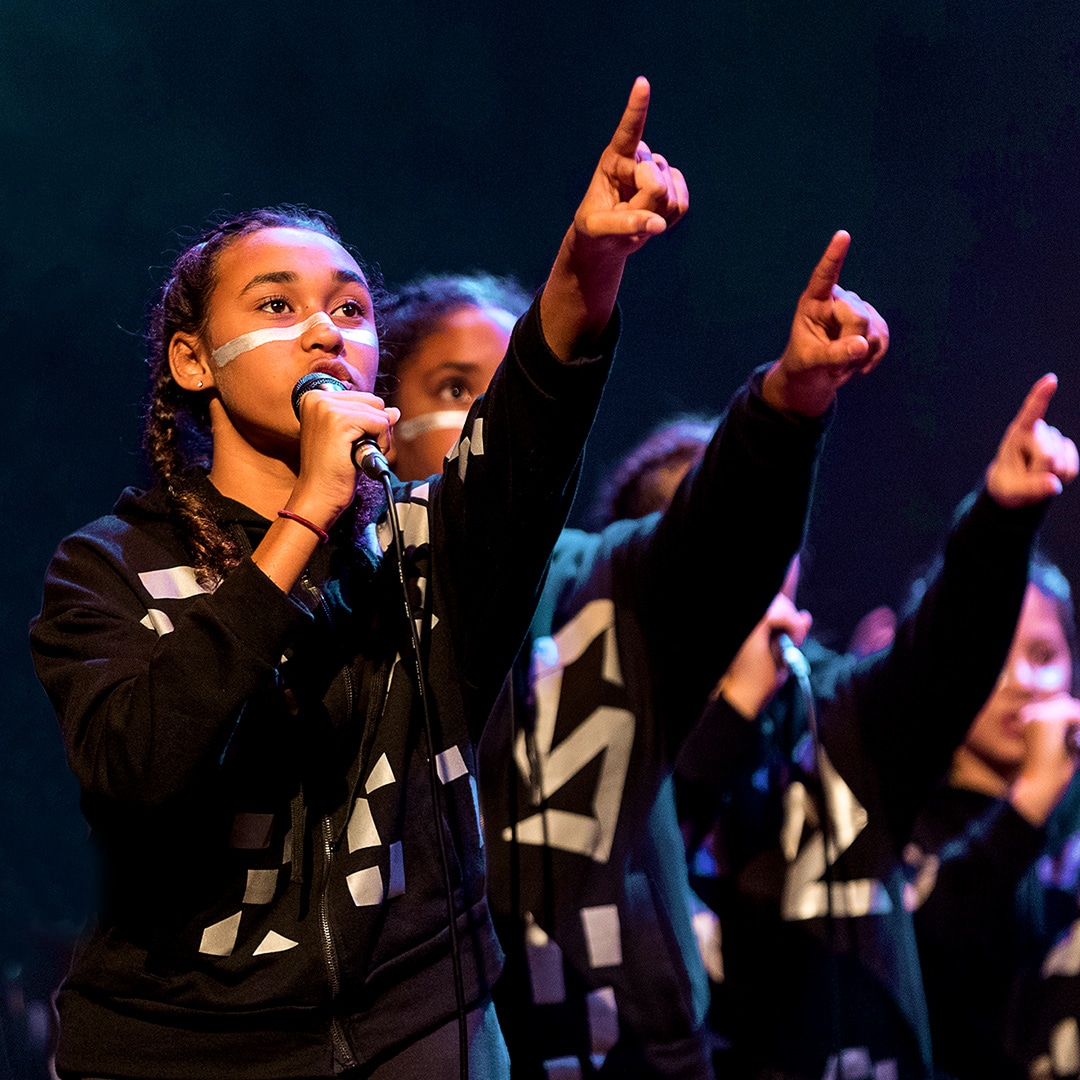Ethics Explainer: Scepticism

Scepticism is an attitude that treats every claim to truth as up for debate.
Religion, philosophy, science, history, psychology – generally, sceptics believe every source of knowledge has its limits, and it’s up to us to figure out what those are.
Sometimes confused with cynicism, a general suspicion of people and their motives, ethical scepticism is about questioning if something is right just because others say it is. If not, what will make it so?
Scepticism has played a crucial role in refining our basic understandings of ourselves and the world we live in. It is behind how we know everything is made of atoms, time isn’t linear, and that since Earth is a sphere, it’s quicker for planes to fly towards either pole instead of in a straight line.
Ancient ideas
In Ancient Greece, some sceptics went so far as to argue since nothing can claim truth it’s best to suspend judgement as long as possible. This enjoyed a revival in 17th century Europe, prompting one of the Western canon’s most famous philosophers, René Descartes, to mount a forceful critique. But before doing so, he wanted to argue for scepticism in as holistic a fashion as possible.
Descartes wanted to prove certain truths were innate and could not be contested. To do so, he started to pick out every claim to truth he could think of – including how we see the world – and challenge it.
For Descartes, perception was unreliable. You might think the world around you is real because you can experience it through your senses, but how do you know you’re not dreaming? After all, dreams certainly feel real when you’re in them. For a little modern twist, who’s to say you’re not a brain in a vat connected up to a supercomputer, living in a virtual reality uploaded into your buzzing synapses?
This line of thinking led Descartes to question his own existence. In the midst of a deeply valuable intellectual freak out, he eventually came to realise an irrefutable claim – his doubting proved he was thinking. From here, he deduced that ‘if I think’, then I exist.
“I think, therefore I am.”
It’s the quote you see plastered over t-shirts, mugs, and advertising for schools and universities. In Latin it reads, “Cogito ergo sum”.
Through a process of elimination, Descartes created a system of verifying truth claims through deduction and logic. He promoted this and quiet reflection as a way of living and came to be known as a rationalist.
The arrival of the empiricist
In the 18th century, a powerful case was made against rationalism by David Hume, an empiricist. Hume was sceptical of logical deduction’s ability to direct how people live and see the world. According to Hume, all claims to truth arise from experiences, custom and habit – not reason.
If we followed Descartes’ argument to its conclusion and assessed every single claim to truth logically, we wouldn’t be able to function. Navigating throughout the world requires a degree of trust based on past experiences. We don’t know for sure that the ground beneath us will stay solid. But considering it generally does, we trust (through inductive reasoning) that it will stay that way.
Hume argued memories and “passions” always, eventually, overrule reason. We are not what we think, but what we experience.
Perhaps you don’t question the nature of existence at the level of Descartes, but on some level, we are all sceptics. Scepticism is how we figure out who to confide in, what our triggers are, or if the next wellness fad is worth trying out. Acknowledging how powerful our habits and emotions are is key to recognising when we’re tempted to overlook the facts in favour of how something makes us feel.
But part of being a sceptic is knowing what argument will convince you. Otherwise, it can be tempting to reduce every claim to truth as a challenge to your personal autonomy.
Scepticism, in its best form, has opened up mind-boggling ways of thinking about ourselves and the world around us. Using it to be combative is a shortsighted and corrosive way to undermine the difficult task of living a well examined life.
Ethics in your inbox.
Get the latest inspiration, intelligence, events & more.
By signing up you agree to our privacy policy
You might be interested in…
Opinion + Analysis
Relationships, Society + Culture
Meet Dr Tim Dean, our new Senior Philosopher
Opinion + Analysis
Relationships
Freedom and disagreement: How we move forward
LISTEN
Relationships, Society + Culture
Little Bad Thing
Opinion + Analysis
Relationships
When are secrets best kept?
BY The Ethics Centre
The Ethics Centre is a not-for-profit organisation developing innovative programs, services and experiences, designed to bring ethics to the centre of professional and personal life.
Inside The Mind Of FODI Festival Director Danielle Harvey

Inside The Mind Of FODI Festival Director Danielle Harvey
Opinion + AnalysisRelationshipsSociety + Culture
BY The Ethics Centre 5 OCT 2018
We sat down with Festival of Dangerous Ideas 2018 festival director Danielle Harvey to take peak into the inspirations, motivations and challenges behind creating one of the most confronting and thought-provoking events in Australia.
1. It’s been said FODI was Australia’s first disruptive festival. What is it about the festival that resonates so strongly with audiences?
People want more than a headline. They want to hear more in depth analysis and a range of perspectives. To hear straight from the academics, scientists, researchers and not have it filtered, distorted. A live festival doesn’t get more direct.
2. There are so many different ideas, themes and perspectives out there that matter. How do you narrow it down to land this year’s line up?
A lot of vigorous discussion! Myself and the co-curators are always looking at the next thing that’s going to hit, we’ve been very good at looking at the horizon in past festivals, discussing things like Russia, surrogacy and banking all before a scandal breaks.
We also look to the superstars of the non-fiction world, the academics and researchers doing great work and are great communicators. And we look for a multitude of perspectives, beyond politics. A discussion that involves people from across disciplines, experts in their field that bring to light a focus on a particular aspect and when combined help to show the complex nature of many of our biggest ideas and problems.
3. The festival has been going strong for 9 years now. What gets easier, what doesn’t?
This is my 7th FODI. I feel very lucky to have been able to grow my own understanding of the world in a very public way! The easier and harder is the same – finding great people.
Easier because people around the world know about this festival and we have great alumni and reputation, harder because we’ve presented so many amazing people and so many ideas… I look forward to next year… 10 feels like a good ‘best of’ opportunity!
4. What does it take to be a great festival director?
Curiosity about the world. I’ve curated and created a number of festivals – FODI, Antidote, All About Women, BingeFest and Mardi Gras and they always start about thinking about audiences and what they should be able to see/hear/experience. I am insatiably curious and I love finding connections between things.
5. What’s it like to produce a festival like FODI? What does a typical day look like for you?
Talking. Talking. Appreciating the amazing team around me. (I have the best people who do so much). More talking. Noodling on the internet, reading, watching. Talking some more. (I talk to people from all different walks of life to hear what is interesting them).
6. What do you think sets the 2018 festival apart from recent years?
The island! The opportunity to fully immerse yourself in a program sans distractions. It’s all about the ideas and engaging with them deeply this year. The opportunity to include more large scale art and theatre has also made this a very different festival. We have the space and time to do these things on Cockatoo.
7. Why the move to Cockatoo Island and what are the challenges or surprises in setting up a festival in the middle of Sydney Harbour?
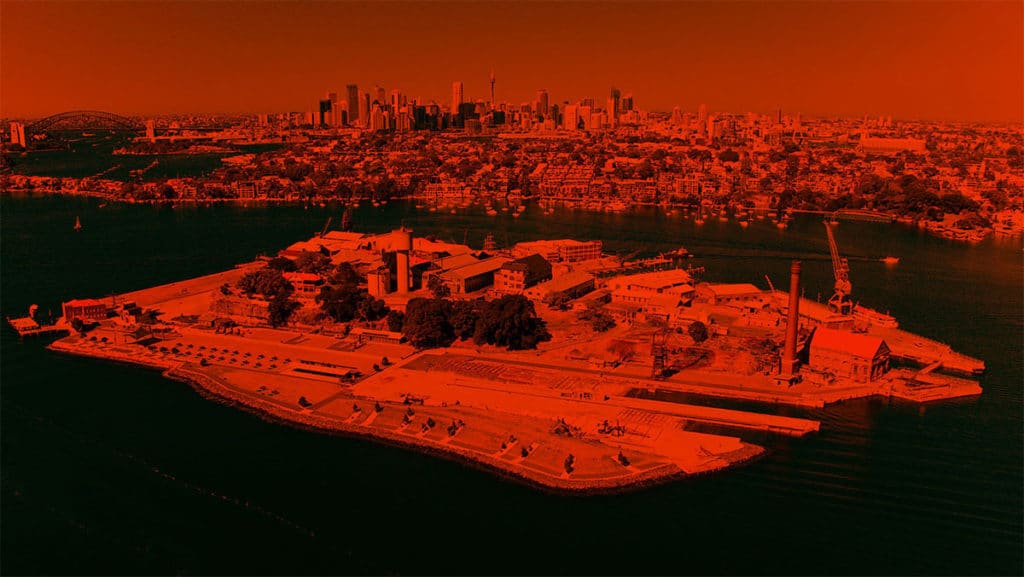
Everything has to be barged on! That’s the biggest challenge. It’s an amazing site, full of potential, but it is an island with no real infrastructure. The history of the place is incredibly evocative and any time we go there we are amazed at this little gem sitting on our doorstep. It’s a great place to let your mind and feet wander (and wonder)!
8. Finally, we have to ask. Which bit are you most to looking forward to? What are the must-see events?
That is tough, it will all be great! I am really looking forward to Chuck Klosterman, to Rukmini Callimachi and of course Stephen Fry! I think the ‘Too Dangerous’ panel will also be full of excellent take-aways.
I am also excited about the two art installations – ‘Submission’ and ‘The Hand That Wields It’ these installations are excellent opportunities to see ideas represented in a different way rather than via a talk.
Everything you need to know: The Festival Of Dangerous Ideas 2018
From sex robots to sex clowns, to tying yourself up in lies and rope, this year’s festival on 3 – 4 November takes you beyond the hype and deep into the issues that confront and divide us.
Embrace the festival experience on Cockatoo Island with one-day or full weekend passes. All passes include free return ferry transport.
Featured speakers include ex Westboro Baptist Church follower Megan Phelps-Roper, conservative historian Niall Ferguson; iconoclast Germaine Greer; rock star of AI Toby Walsh; micro-dosing advocate Ayelet Waldman; pop culture critic Chuck Klosterman; academic and activist Mick Dodson and so many more!
To crown FODI 2018, join Stephen Fry at a special event at Sydney Town Hall, where he will deliver an oration on the lost art of fabulous disagreement.
Ethics in your inbox.
Get the latest inspiration, intelligence, events & more.
By signing up you agree to our privacy policy
You might be interested in…
Opinion + Analysis
Society + Culture, Health + Wellbeing
Make an impact, or earn money? The ethics of the graduate job
Opinion + Analysis
Climate + Environment, Politics + Human Rights, Relationships
A burning question about the bushfires
Opinion + Analysis
Climate + Environment, Politics + Human Rights, Relationships, Society + Culture
The youth are rising. Will we listen?
Opinion + Analysis
Health + Wellbeing, Relationships
